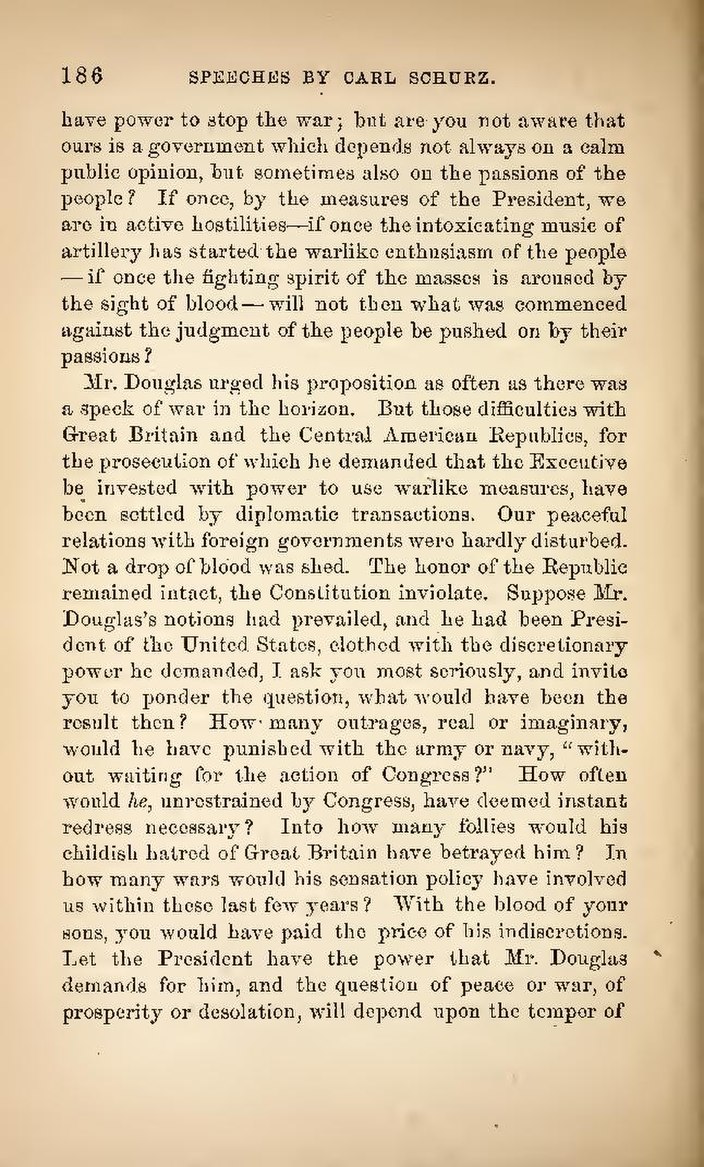have power to stop the war; but are you not aware that ours is a government which depends not always on a calm public opinion, but sometimes also on the passions of the people? If once, by the measures of the President, we are in active hostilities—if once the intoxicating music of artillery has started the warlike enthusiasm of the people—if once the fighting spirit of the masses is aroused by the sight of blood—will not then what was commenced against the judgment of the people be pushed on by their passions?
Mr. Douglas urged his proposition as often as there was a speck of war in the horizon. But those difficulties with Great Britain and the Central American Republics, for the prosecution of which he demanded that the Executive be invested with power to use warlike measures, have been settled by diplomatic transactions. Our peaceful relations with foreign governments were hardly disturbed. Not a drop of blood was shed. The honor of the Republic remained intact, the Constitution inviolate. Suppose Mr. Douglas's notions had prevailed, and he had been President of the United States, clothed with the discretionary power he demanded, I ask you most seriously, and invite you to ponder the question, what would have been the result then? How many outrages, real or imaginary, would he have punished with the army or navy, “without waiting for the action of Congress?” How often would he, unrestrained by Congress, have deemed instant redress necessary? Into how many follies would his childish hatred of Great Britain have betrayed him? In how many wars would his sensation policy have involved us within these last few years? With the blood of your sons, you would have paid the price of his indiscretions. Let the President have the power that Mr. Douglas demands for him, and the question of peace or war, of prosperity or desolation, will depend upon the temper of
